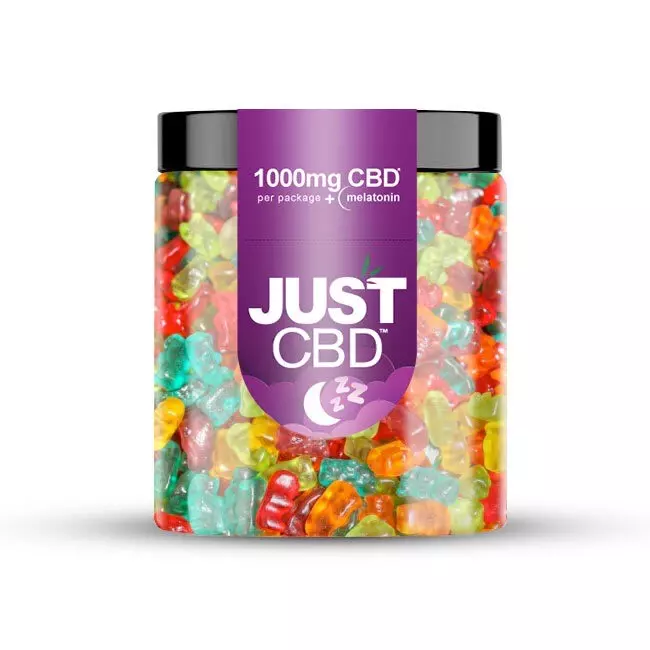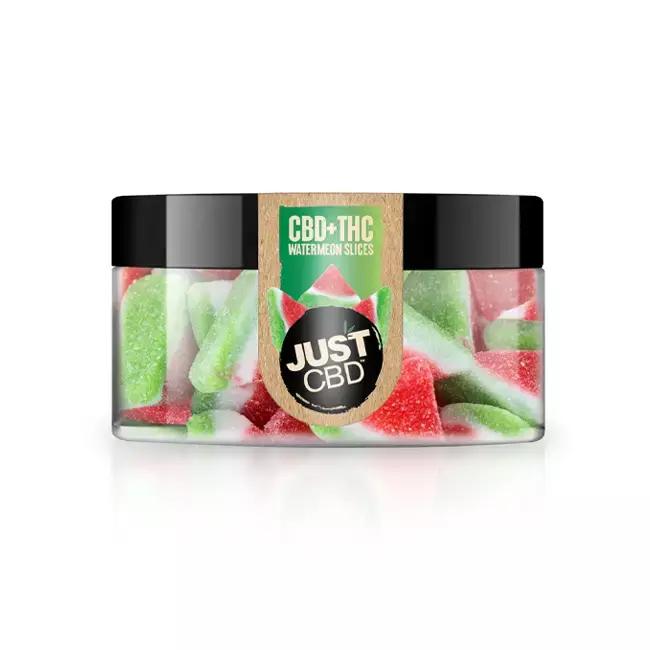How CBD Gummies Can Help Relieve Muscle Tension And Pain
May 27, 2025
CBD’s Interaction with the Endocannabinoid System
CBD interacts with the body’s endocannabinoid system (ECS), a complex network of receptors and neurotransmitters responsible for regulating various physiological processes, including pain perception, inflammation, and muscle function.
The Role of the Endocannabinoid System in Pain Management
The endocannabinoid system (ECS) plays a crucial role in managing pain by modulating the body’s response to discomfort signals. It achieves this through a delicate balance of endocannabinoids, naturally occurring compounds that bind to cannabinoid receptors (CB1 and CB2) located throughout the nervous system and immune cells. When these receptors are activated, they influence neurotransmitter release, reducing inflammation, and altering pain perception.
CBD, short for cannabidiol, is a non-psychoactive compound found in cannabis plants. While CBD does not directly bind to CB1 and CB2 receptors like THC (the psychoactive component of marijuana), it interacts indirectly with the ECS by influencing the production and breakdown of endocannabinoids. This interaction helps restore balance within the system, potentially leading to pain relief.
How CBD Affects the ECS and Reduces Inflammation
CBD’s indirect interaction with the ECS can contribute to reducing inflammation in several ways. Firstly, it may enhance the activity of endocannabinoids like anandamide, which has potent anti-inflammatory properties. Secondly, CBD can inhibit the enzymes responsible for breaking down these endocannabinoids, thus increasing their levels and prolonging their effects.
By modulating the ECS in this manner, CBD can effectively suppress the inflammatory response triggered by muscle tension or injury. This reduction in inflammation can lead to a decrease in pain perception and discomfort.
Mechanisms of Action for Muscle Tension Relief
Muscle tension often leads to discomfort and pain. Understanding how certain compounds, like those found in CBD gummies, can alleviate this tension is crucial for finding effective relief. These compounds interact with the body’s endocannabinoid system (ECS), a complex network that plays a vital role in regulating various physiological processes, including pain perception, inflammation, and muscle function.

CBD’s Anti-inflammatory Properties
CBD interacts with the body’s endocannabinoid system (ECS), a complex network of receptors and neurotransmitters responsible for regulating various physiological processes, including pain perception, inflammation, and muscle function.
The endocannabinoid system (ECS) plays a crucial role in managing pain by modulating the body’s response to discomfort signals. It achieves this through a delicate balance of endocannabinoids, naturally occurring compounds that bind to cannabinoid receptors (CB1 and CB2) located throughout the nervous system and immune cells. When these receptors are activated, they influence neurotransmitter release, reducing inflammation, and altering pain perception.
CBD, short for cannabidiol, is a non-psychoactive compound found in cannabis plants. While CBD does not directly bind to CB1 and CB2 receptors like THC (the psychoactive component of marijuana), it interacts indirectly with the ECS by influencing the production and breakdown of endocannabinoids. This interaction helps restore balance within the system, potentially leading to pain relief.
CBD’s indirect interaction with the ECS can contribute to reducing inflammation in several ways. Firstly, it may enhance the activity of endocannabinoids like anandamide, which has potent anti-inflammatory properties. Secondly, CBD can inhibit the enzymes responsible for breaking down these endocannabinoids, thus increasing their levels and prolonging their effects.
By modulating the ECS in this manner, CBD can effectively suppress the inflammatory response triggered by muscle tension or injury. This reduction in inflammation can lead to a decrease in pain perception and discomfort.
CBD’s Effect on Neurotransmitter Release
CBD’s impact on neurotransmitter release is a key factor in its potential for muscle tension relief. The endocannabinoid system (ECS) influences the release of various neurotransmitters involved in pain signaling, inflammation, and muscle function. By interacting with the ECS indirectly, CBD can modulate the activity of these neurotransmitters.
For instance, CBD may enhance the effects of anandamide, an endocannabinoid known for its ability to reduce pain and inflammation by binding to CB1 receptors. It also inhibits enzymes that break down endocannabinoids, prolonging their beneficial effects on neurotransmitter balance.
CBD’s Impact on Blood Flow and Circulation
CBD’s influence on blood flow and circulation is still being researched, but some studies suggest potential benefits. One proposed mechanism is through the modulation of vascular tone, the degree to which blood vessels constrict or relax. By interacting with the ECS, CBD may influence the release of nitric oxide, a molecule that promotes vasodilation (widening of blood vessels), thus improving blood flow.
Improved circulation can have several positive effects on muscle tension relief. Enhanced blood flow delivers more oxygen and nutrients to muscles, aiding in their recovery and reducing stiffness. Additionally, increased circulation can help flush out metabolic waste products that contribute to inflammation and pain.
Scientific Evidence and Studies
Scientific studies provide valuable insights into the potential benefits of CBD gummies for relieving muscle tension and pain.

Clinical Trials on CBD and Muscle Pain
A growing body of research suggests that CBD may be an effective option for managing muscle pain. Some studies have shown that CBD can reduce inflammation, a common cause of muscle pain. Other studies have shown that CBD can interfere with the way the body processes pain signals.
While more research is needed to fully understand how CBD works for muscle pain, existing evidence suggests it may be a promising natural remedy.
Clinical trials investigating the effects of CBD on muscle pain are ongoing. These trials involve administering CBD in various forms (e.g., oral capsules, topical creams) to participants with different types of muscle pain and assessing its impact on pain levels, inflammation markers, and other relevant factors.
Research on CBD’s Effectiveness for Different Types of Muscle Pain
Scientific evidence and studies suggest that CBD may be effective for relieving various types of muscle pain. Research indicates that CBD’s interaction with the endocannabinoid system (ECS) plays a crucial role in this potential analgesic effect.
CBD is thought to indirectly influence CB1 and CB2 receptors within the ECS, modulating neurotransmitter activity associated with pain perception, inflammation, and muscle function. Studies have shown that CBD can reduce inflammation by enhancing the effects of endocannabinoids like anandamide and inhibiting their breakdown.
Furthermore, research suggests that CBD may influence blood flow and circulation by affecting vascular tone. Improved blood flow can deliver more oxygen and nutrients to muscles, aiding in recovery and potentially reducing pain.
While promising, more research is needed to fully understand the mechanisms behind CBD’s pain-relieving effects and its long-term efficacy for specific types of muscle pain.
Case Studies and Anecdotal Evidence
Scientific evidence regarding the effectiveness of CBD gummies in relieving muscle tension and pain is growing but still evolving. Studies suggest that CBD interacts with the body’s endocannabinoid system (ECS), which plays a role in regulating pain perception, inflammation, and muscle function.
Research indicates that CBD may help reduce inflammation by influencing the activity of endocannabinoids, naturally occurring compounds in the body that bind to cannabinoid receptors.
Some studies have shown promising results in using CBD for pain management, but more research is needed to determine its long-term effects and optimal dosages for specific conditions like muscle tension and pain.
Case studies, while not considered conclusive scientific evidence, can offer anecdotal insights into individual experiences with CBD. These reports may highlight potential benefits but should be interpreted with caution as they lack the controlled methodology of clinical trials.
Anecdotal evidence from individuals who have used CBD gummies for muscle tension and pain relief often cites reductions in discomfort, improved mobility, and better sleep quality.
It’s important to consult with a healthcare professional before using CBD gummies or any other new supplement, especially if you have pre-existing medical conditions or are taking medications.
Choosing the Right CBD Gummies for Muscle Tension
Choosing the right CBD gummies for muscle tension can feel overwhelming with so many options available. Understanding how CBD interacts with the body and the factors to consider when selecting a product can help you make an informed decision.

Dosage Considerations
When selecting CBD gummies for muscle tension, consider the following factors: potency, ingredients, third-party testing, and your individual needs.
Potency refers to the amount of CBD per serving. For muscle tension, starting with a lower dose (e.g., 5-10mg) and gradually increasing it as needed is advisable. Pay attention to the label and choose gummies that align with your desired dosage range.
Ingredients matter! Opt for gummies made with natural ingredients and avoid those containing artificial flavors, colors, or preservatives. Full-spectrum CBD gummies, which contain a wider range of cannabinoids and terpenes, may offer more therapeutic benefits due to the entourage effect.
Third-party testing ensures the product’s quality and safety. Look for gummies that have been tested by an independent laboratory for potency and contaminants such as heavy metals or pesticides. This information should be available on the product label or the manufacturer’s website.
Dosage considerations are crucial. Start with a low dose (e.g., 5-10 mg) of CBD and gradually increase it until you find the optimal amount for your needs. Individual responses to CBD can vary, so finding the right dosage may require some experimentation.
Remember, everyone’s body reacts differently to CBD. What works well for one person may not be as effective for another. It’s important to listen to your body and adjust the dosage accordingly.
If you have any concerns or questions about using CBD gummies, consult with a healthcare professional.
CBD Concentration and Potency
Choosing the right CBD gummies for muscle tension involves considering factors like potency, ingredients, and third-party testing. Potency refers to the amount of CBD per serving, and starting with a lower dose (e.g., 5-10mg) is recommended. Gradually increase the dosage as needed.
Look for gummies made with natural ingredients and avoid those containing artificial additives. Full-spectrum CBD gummies, which include a range of cannabinoids and terpenes, may offer broader therapeutic benefits.
Third-party testing ensures product quality and safety by verifying potency and the absence of contaminants like heavy metals or pesticides. This information should be readily available on the product label or the manufacturer’s website.
Ingredients and Quality Control
Choosing the right CBD gummies for muscle tension involves considering several key factors, including potency, ingredients, and quality control measures. Potency refers to the amount of CBD present in each serving, and starting with a lower dose is generally recommended before gradually increasing it as needed.
Ingredients matter! Opt for gummies made with natural, high-quality ingredients and avoid those containing artificial flavors, colors, or preservatives. Full-spectrum CBD gummies, which contain a wider range of cannabinoids and terpenes, may offer additional therapeutic benefits due to the “entourage effect.”
Ensuring the quality and safety of CBD gummies is crucial. Look for products that have been third-party tested by independent laboratories. These tests verify the CBD content, purity, and absence of contaminants such as heavy metals or pesticides. The results of these tests should be readily available from the manufacturer.
Try CBD Gummies from Just CBD for wellness
Buy cbd infused gummies at JustCBD
K Aesthetics Studio
Lumispa Face Care
- What Is The Difference Between Cheek Fillers And Temple Fillers? - June 23, 2025
- Upper Face Anti Wrinkle Treatment Near Capel, Surrey - June 19, 2025
- Shotgun Rodeo Sex Position - June 9, 2025
